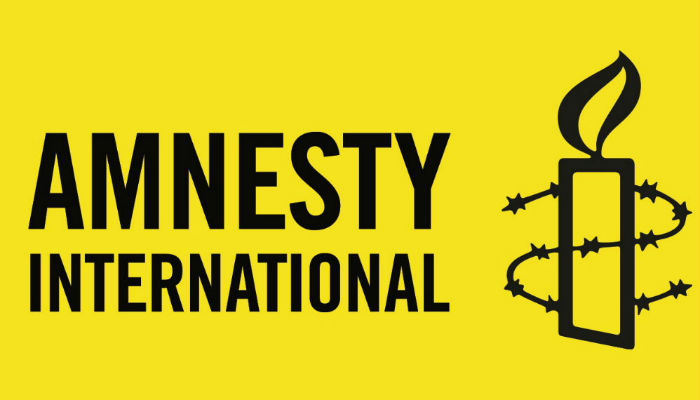Amnesty International on Wednesday called on member states of the Council of Europe (CoE) to institute infringement proceedings against Turkey for failing to implement the rulings of the European Court of Human Rights (ECtHR).
Referring to the cases of businessman and philanthropist Osman Kavala and Kurdish politician Selahattin Demirtaş, two prominent figures who have been imprisoned for more than three and four years, respectively, Nils Muižnieks, director of Amnesty International’s Europe Regional Office, said Turkey’s recalcitrant attitude toward ECtHR rulings calling for the immediate release of both men should not go unanswered.
“What can the Council of Europe and its member states do when a country shows brazen disregard for the obligations under the European Convention? One tool – launching ‘infringement proceedings’ against a recalcitrant state – has only been used once in the case of Ilgar Mammadov v. Azerbaijan. Amnesty International is urging all CoE member states to institute such an ‘infringement procedure’ against Turkey to show their resolve against political persecution,” Muižnieks said.
In 2017 Azerbaijan’s failure to respond to the European court’s repeated calls to release dissident Ilgar Mammadov prompted the Committee of Ministers to refer the case back to the ECtHR for it to legally establish if Azerbaijan had failed to abide by the judgment. Infringement proceedings do not explicitly provide for any sanctions to be imposed on the state concerned; however, should the procedure yield no tangible results, a state could eventually risk suspension or expulsion from the CoE.
Underlining that ECtHR rulings on charges against Demirtaş and Kavala meant that both men face political persecution, the Amnesty director said Turkey’s response to repeated calls for their release “has been to spit in the face of the rest of Europe by slapping new, unfounded charges on both men, demonstrating the clearly political nature of the cases.”
“First, the authorities charged Kavala with organizing the Gezi protests – mass demonstrations in 2013 against an urban development project. When a court acquitted Kavala, the authorities immediately rearrested him – for allegedly being behind the 2016 failed coup attempt. For good measure, they also accused him of ‘espionage’,” Muižnieks said, branding the accusations against Kavala as “fantastical.”
“The Demirtaş case has followed a similar logic. A leader of Peoples’ Democratic Party, the HDP, the second-largest opposition parties, he is in pre-trial detention on baseless charges of ‘terrorism.’ At the same time the European Court issued its final ruling in Demirtaş’ favour in December 2020, a new 3,000+ page indictment against him and 107 others was accepted by a Turkish court,” he added.
The Amnesty director said another measure against Turkey could be for the secretary-general, the political head of the Council of Europe, “to launch a special inquiry” into why the judgments of the ECtHR are not being implemented.
“It is time for European governments to ratchet up the pressure and demand Turkey’s compliance with its obligations and not be blinded by the lofty statements in the long-awaited human rights action plan announced by President Erdoğan on 2 March,” said the Amnesty director, referring to a plan unveiled by Turkish President Recep Tayyip Erdoğan at a time when the country is the subject of harsh criticism due to gross human rights violations.
The plan, which consists of 393 activities that will be initiated in a span of two years, has received little appreciation due to the government’s poor record on human rights, with thousands of people including writers, politicians and journalists behind bars despite rulings from the ECtHR for their immediate release.
“The deep erosion in the justice system can only be reversed through a root and branch reform,” Muižnieks said.


